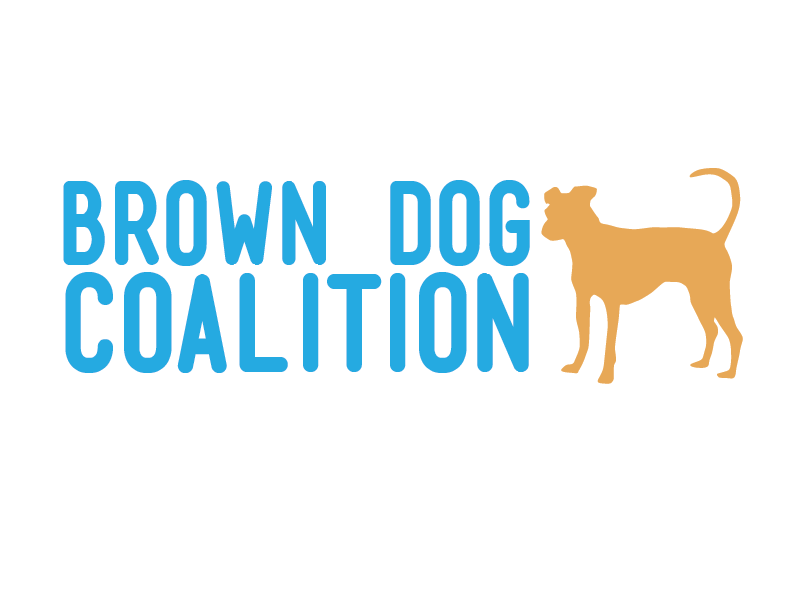Read This if You Are a First Time Adopter
You’ve just moved out! You’ve just settled down! You’ve just bought a house! You’ve just realized this is the perfect time to adopt your first dog—Congratulations! Here are some tips and tricks to follow when looking to adopt your first dog from a rescue group or shelter.
Keywords to look for in adoption profiles:
Has experience/has lived/is friendly/is pro-social with most people, kids, cats, and other dogs: Many shelters kid, cat, and dog “test” their dogs, but that only provides a snapshot of information. If you are a first time adopter who is looking for a dog who is friendly with most people, kids, cats, or other dogs, ask about a dog’s experience with them over time.
Sweet, friendly, endearing, confident: Keywords that indicate a dog’s temperament are a great way to see if a dog would be a good fit for you. Descriptor words like the ones we’ve listed mean that a dog is able to adapt and thrive in a variety of settings—when friends visit, running errands, outdoor breweries, friend’s houses, etc. Other words like: aloof, fearful, or anxious—these mean that a dog will need more thoughtful training and help navigating the world.
Positive reinforcement training required: Responsible rescues will require first time adopters to invest in professional, positive reinforcement training with their dog. Some dogs have behavioral notes listed in their profile like separation anxiety, resource guarding, or leash reactivity. These are behaviors that require specific training that not everyone is able to commit to (and that’s okay!). If your lifestyle isn’t amenable to helping a dog through these challenges, look for a dog whose training requirements are only a positive reinforcement training class and ongoing life skills and enrichment. Keep in mind, training isn’t a finite skill—it’s a lifelong journey for every dog and adopter!
Apartment friendly: If you live in a city, apartment, or high-traffic location, ask if a dog has been exposed to that and what their experience was like. All too often, we see dogs who have only ever experienced quiet, rural settings thrust into the big city. This can be a traumatizing experience and create many unexpected challenges for both dogs and adopters.
Adult weight: If you live in an apartment (or might in the future), you need to take weight (and breed restrictions) into consideration. The only way to guarantee the weight of a mixed breed dog with unknown parentage is to wait until they are an adult dog. If you must have a dog who weighs less than a certain amount, please consider a dog who is currently at or close to their adult weight (16-18 months old).
Energy level: Think realistically about the amount of time you are able to dedicate to exercise and enrichment activities during the work week. If you are able to provide a 30 minute walk most days of the week, look for a dog with medium to low energy. If you are looking for a running buddy, look for a medium/high energy dog who is at least nine months old.
Veterinary care: You may not find this information in an adoption profile, but a reputable shelter or rescue will have all of the routine veterinary care they provide to their animals on their website. Brown Dog Coalition provides originals of all veterinary paperwork to adopters, including vaccination records, spay or neuter certificate, health certificate, quarantine paperwork, and any other notes for special veterinary care.
Prepare, prepare, prepare
Prepare, prepare, prepare, and then share in your application how you are preparing!
Jenny Efimova, professional dog trainer of Dogminded, has a repository of recommended reading for new and seasoned adopters alike. Our top recommendations to start with are Wag: The Science of Making Your Dog Happy by Zazie Todd and How Dogs Learn by Mary R. Burch, Jon S. Bailey
Consulting a dog trainer before adoption can be a great place to gain insight on what you are looking for in a dog. We already have a blog post that walks through how to choose a dog trainer. Adding this simple step of preparation to your adoption application indicates that you know what you are looking for and are committed to a happy and enriched lifestyle with your future dog.
Gain experience
If you have never been the sole caretaker of a dog, try fostering, dog walking, or dog-sitting first! It can be surprising just how much time, energy, attention, and exercise dogs need to be fulfilled every day, of every week, of every month.
Build a support network
As a first time adopter, having a support network is critical to your success. Your support network might include family members, dog-loving friends, a trusted vet, a positive-reinforcement dog trainer, and the rescue/shelter where your dog is from. Life happens—and it’s important to have a support network to lean on when you’re away from home longer than expected, or when you need help with a new behavior your dog is presenting, or when you just want someone to spam with pictures of your adorable new furry family member.
Adopting your first dog is an exciting experience but it comes with a lot of responsibility. Be honest in your adoption application that you are a first time adopter and share what you have done to prepare for adoption. A thoughtful application shows rescues and shelters that you have already taken the first step in being a responsible pet parent by setting yourself and your future dog up for success.
“
As a first time adopter, having a support network is critical to your success. Your support network might include family members, dog-loving friends, a trusted vet, a positive-reinforcement dog trainer, and the rescue/shelter where your dog is from.


